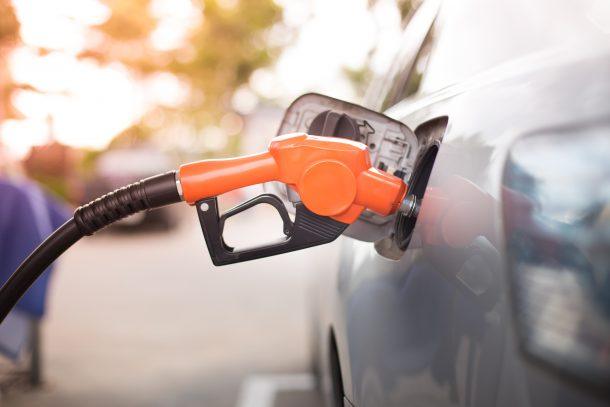Piston Slap: Corny Fuel Talk From Iowa?

Duncan writes:
My daily driver is a 2013 Hyundai Genesis 5.0 R-Spec (with about 22,000 miles), making a claimed 429 hp on premium gas (91 octane, I assume). The power dips to 421 hp (claimed) when running on regular. Here in Iowa, we have the luxury of purchasing fuel with no ethanol.
The 87 octane gas w/o corn costs almost as much as 91 with. If it was your money, what would you put in the tank? 87 with no ethanol ($2.40ish a gallon), 87 with ethanol ($2.20ish) or 91 with ethanol ($2.50ish)? Running 87 or 91 without ethanol does improve mileage, whereas I do not notice an increase in performance running 91 or 93 — though it is recommended (but not required) by the good folks at Hyundai.
Sajeev answers:
Oh, the irony of a reader in corn country having access to ethanol-free gas while yours truly, in the hub of big oil, lacks such variety. But I digress…
My love of pure gasoline comes from older vehicles with fuel systems ill-equipped to handle the corny stuff; also lacking the high-compression motors that (could) take advantage of that 2-3 octane number increase.
According to Google, your ride has a stout 11.5:1 compression ratio. In theory, you’d make more power with a computer reprogrammed for ethanol. In reality? Most folks won’t pay for a tune, and the quality depends on the person behind the laptop. Without the tune, with my Genesis seat time in mind, any high-octane power bump is offset by aggressive torque management at low throttle inputs. No worries for non-lead foot drivers: stick with low octane.
If increased power isn’t likely, let’s talk value via fuel economy and the price at the pump for low-octane fuel. Here’s the thing: nobody can armchair your driving habits. Combine that with knowledge of an R-spec Genesis’ computer parameters and who could possibly give a relevant answer? Odds are the $0.20 premium for 100-percent pure, low-octane gas isn’t a significant value proposition. But only you can put it to the test.
[Image: Shutterstock user Tonographer]
Send your queries to sajeev@thetruthaboutcars.com. Spare no details and ask for a speedy resolution if you’re in a hurry…but be realistic, and use your make/model specific forums instead of TTAC for more timely advice.

More by Sajeev Mehta
Latest Car Reviews
Read moreLatest Product Reviews
Read moreRecent Comments
- Redapple2 Dear lord ! That face. HARD NO.
- Urlik Let’s ban for all. Having that data anywhere leaves it open to the Chinese government potentially hacking systems to get the data.
- Redapple2 Gen 1 - 8/10 on cool scale.Gen 2 - 3/10.
- SCE to AUX "...to help bolster job growth and the local economy"An easy win for the politicians - the details won't matter.
- Kjhkjlhkjhkljh kljhjkhjklhkjh so now we will PAY them your tax money to build crappy cars in the states ..


































Comments
Join the conversation
You can check a GGE table to see the difference in energy content which is pretty neat. Anyways IMO if it comes down to simply stretching your dollar then check the fuel economy for each type of fuel. The regular gasoline packs more BTU per unit and also isn't an oxygenated fuel like E10 or what have you so it should require less fuel to produce the same or better power - on the other hand your changing ignition timing in an effort to alter dynamic compression due to the increased volatility of the fuel and in doing so your leaving some fuel economy on the table since firing at a lower compression isn't as efficient and if the difference in average power is enough you'll try and compensate with a set of extra leaded shoes. I ran into that when I stepped out of the GT500 which produced about 630 hp at the rear wheels on a hot day to about 460-470 in the GT350 in the same conditions. Subconsciously I expected the GT350 to pull like the GT500 so I exagerated throttle input until I could get about the same feel in acceleration with predictable results in economy. Ultimately you have to see how it balances out in day to day driving and see how the economy goes.
The fact is that the MPG drop caused by using lower octane in a vehicle that recommends premium varies from engine family to engine family. The effect of E10 on MPG also varies depending on the engine. So the only way to find out how it works out for your car is to test it yourself. Run a couple of tanks of each in your regular day to day driving then compare those results with the price. Also compare the seat of the pants dyno results if that matters. If you don't notice, or don't care about any lost performance then use the fuel with the lowest cost per mile.